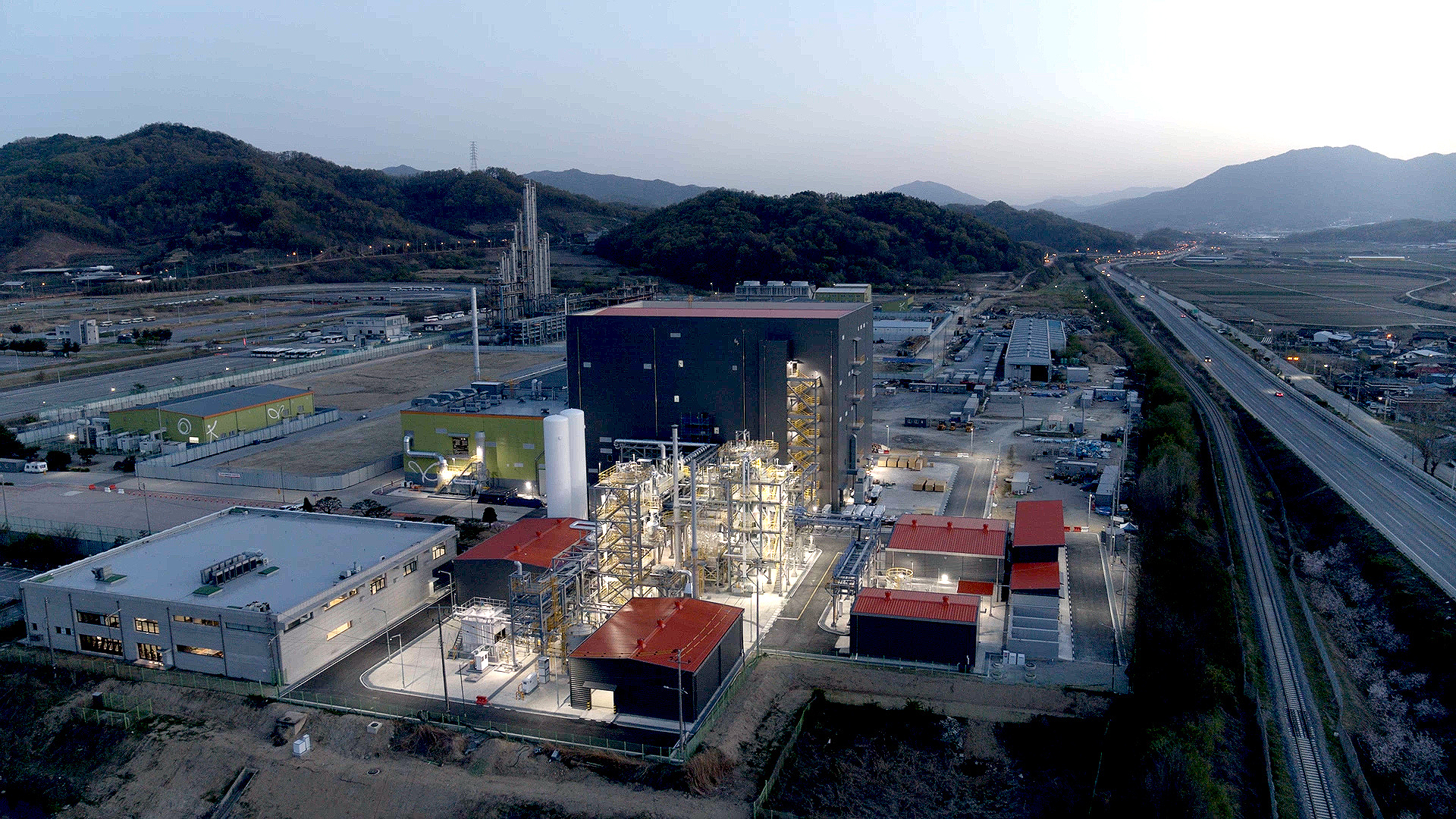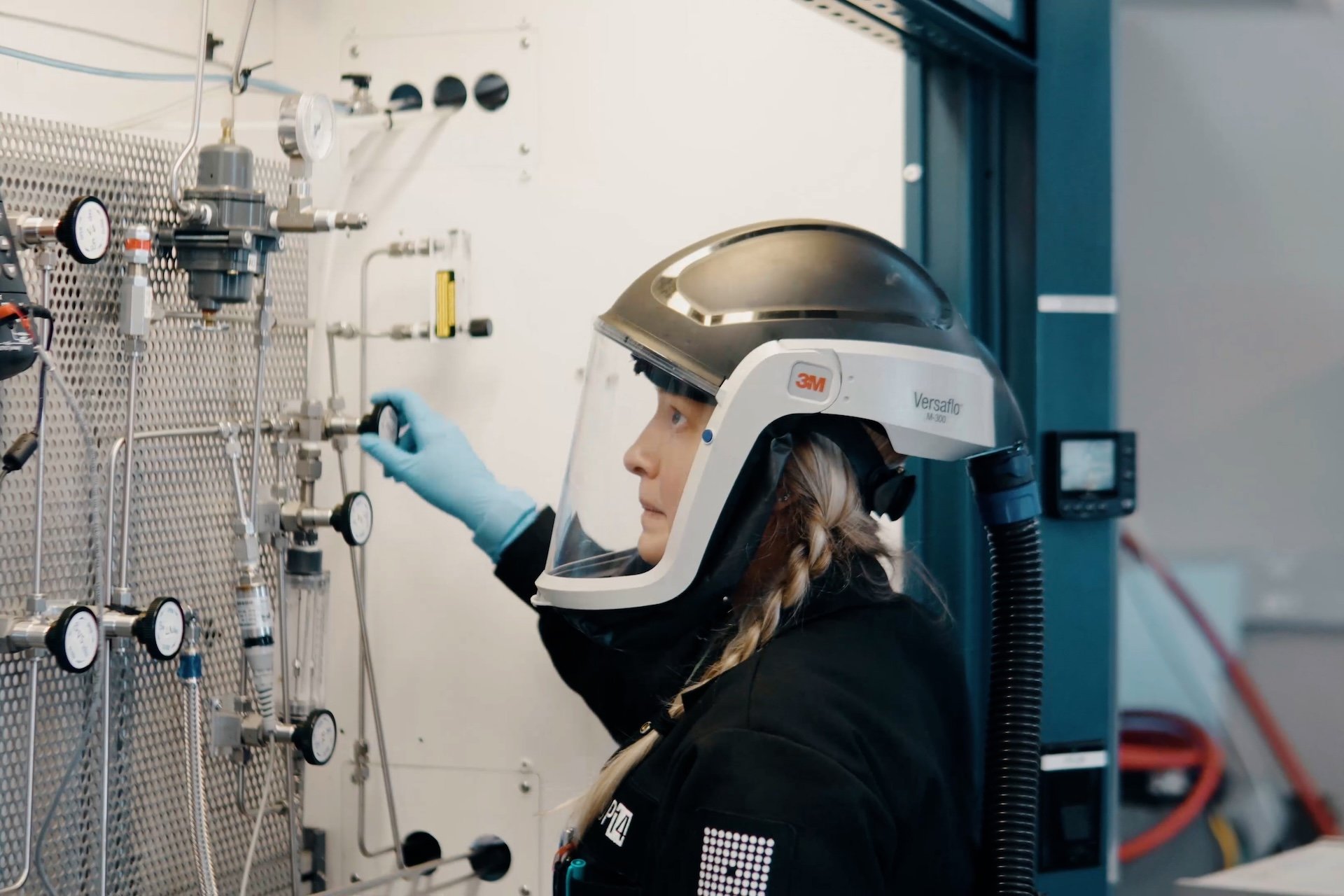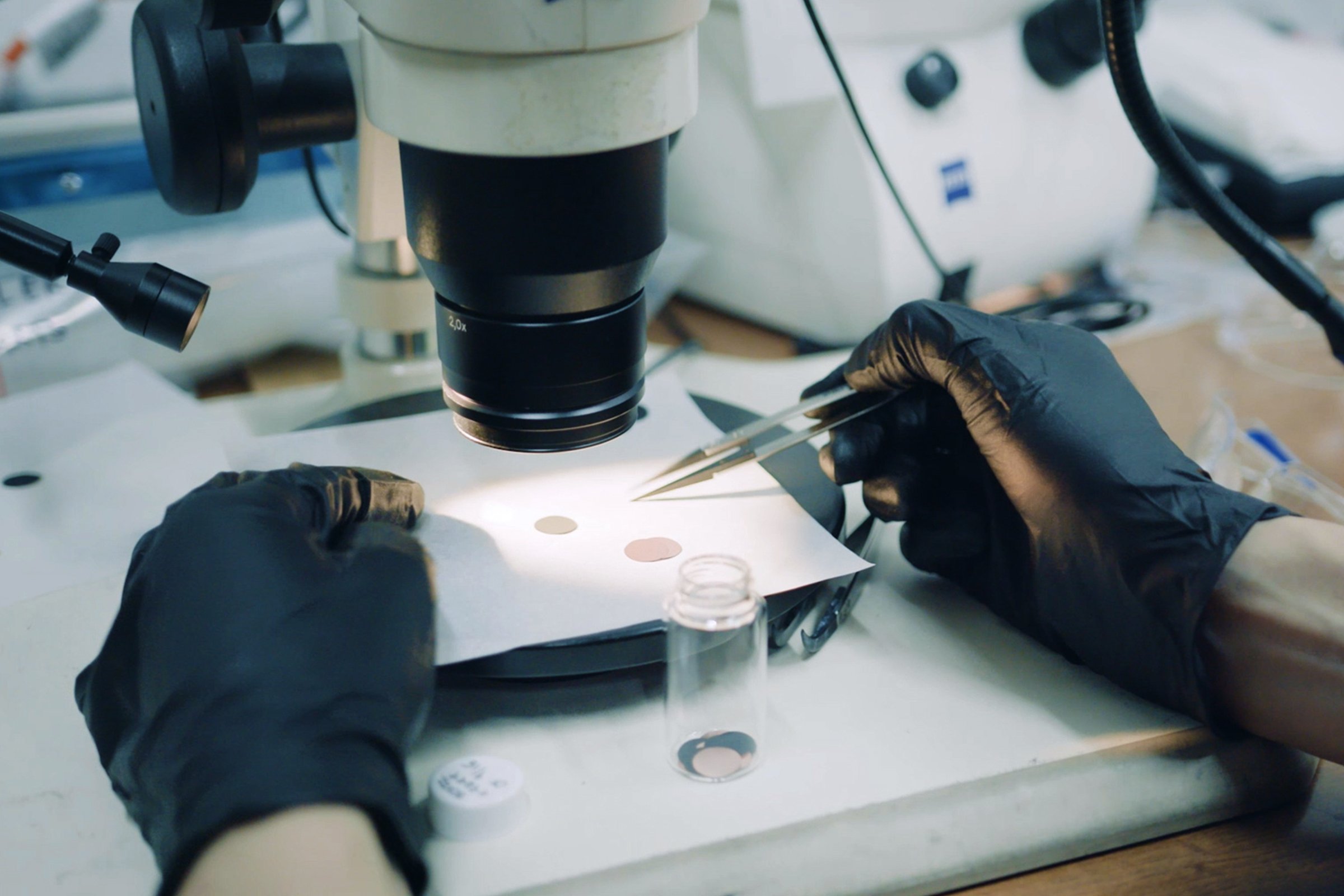Sign up for our popular daily email to catch all the latest EV news!
In this Q&A, Group14 Technologies’ CEO, Rick Luebbe, provides insight into the company’s journey, its cutting-edge silicon battery technology, and the challenges of scaling advanced battery materials. Group14 is at the forefront of transforming energy storage, aiming to deliver superior battery solutions that enhance electric vehicle (EV) performance and support global electrification efforts. Dive into how their revolutionary SCC55® technology is reshaping the industry and pushing the boundaries of what’s possible in energy storage.
Can you give us an overview of Group14 and its business?
Group14 is the world’s largest manufacturer and supplier of advanced silicon battery material, with a mission to electrify everything. Our technology, SCC55®, which looks like a black powder, replaces graphite in traditional lithium-ion batteries, transforming them into higher-performing silicon batteries. Operating at a global commercial scale, we are delivering to over 100 customers representing 95% of worldwide lithium-ion battery production.

What inspired the founding of Group14 and how has the company evolved since its inception?
In 2015, Dr. Rick Costantino and I co-founded Group14, driven by the potential of silicon batteries. We began developing silicon-carbon composite materials that ultimately led to our patented SCC55® technology. Today, Group14 is pioneering an industry that will revolutionize how energy is created, stored, and used. No other company matches our ability to manufacture and deliver advanced silicon battery materials at scale, as scalability was built into our business model from the start.
How does silicon anode technology compare to traditional graphite anodes in terms of performance and sustainability?
Silicon batteries will be the next standard for energy storage. Group14’s SCC55® has 5 times the capacity of graphite, enabling up to 50% greater energy density in lithium-ion batteries and allowing for longer range in electric vehicles and other applications. SCC55® enables zero to 80% charging in under ten minutes, significantly faster than traditional graphite anodes.
In terms of sustainability, silicon can help address graphite supply chain shortages. By developing localized supply chains for our material, we can help to reduce the environmental impact of global shipping.
What are the biggest challenges you see in scaling up production of advanced battery materials?
The biggest challenge is balancing process and product innovation. For automotive and global electronics manufacturers, scalability is just as crucial as performance. Many promising technologies stall in the lab because they fail to scale effectively. In contrast, Group14 was designed to bridge the gap from lab to commercial scale by prioritizing process innovation alongside technology innovation.
How does the company’s production capacity and global footprint compare to competitors in this space, including Chinese manufacturers? What advantages does Group14’s scale and geographic diversification provide in the current geopolitical climate?
In addition to being the world’s largest manufacturer of advanced silicon battery materials, Group14 is also the first and only to offer dual sourcing. This is a critical prerequisite for suppliers to the automotive industry.

Our first Battery Active Materials factory (BAM-1) in Woodinville, Washington has been manufacturing and delivering SCC55® at the ton scale since 2021. We announced in September that we’d completed shipments of SCC55®, produced from an EV-scale joint venture (JV) factory in South Korea, to over 100 EV and consumer electronics battery manufacturing customers worldwide. Group14’s BAM-2 factory site in Moses Lake, Washington, designed to be the largest of its kind, is expected to add another 4,000 tonnes of capacity in 2025, bringing the combined annual capacity for SCC55® material to over 30 gigawatt hours. Also in September, U.S. Department of Energy announced it selected Group14 for an up to $200M award negotiation to construct a 7,200 metric ton capacity silane factory in Moses Lake, to help secure the U.S. battery supply chain. Silane is a critical raw material for the production of silicon batteries.
Group14’s scale and geographic reach enhance local supply chain resilience, reducing the impact of geopolitical tensions and trade disputes. This also enables localized production, helping OEMs and battery manufacturers meet the increasing demand for regionalized supply chains.
Group14 has announced partnerships with major automotive companies. How do these collaborations accelerate EV adoption?
Group14 has signed seven multi-year offtake agreements with leading EV and consumer electronic cell manufacturers – across Europe, Asia, and North America, totaling over $700 million of contract value – including a notable partnership with CustomCells, a German battery pioneer valued at over $300 million.
Our partnerships are turning the next generation of silicon batteries into a reality for many automotive, consumer electronic and aviation customers who seek transformative, high-performance rechargeable power. The substantial performance improvements offered by SCC55® drive EV adoption by addressing key consumer concerns, such as range and charge time, and strengthening the global supply chain for advanced battery materials. The long-term nature of these agreements – the CustomCells contract extends beyond 2030 – provides EV manufacturers with the supply security necessary to confidently plan and scale their production.

As more automakers commit to a path to electrification, how do you see the competitive landscape evolving for battery material suppliers like Group14?
Group14 welcomes competition. The global demand for energy is increasing exponentially and we need all hands on deck to even come close to meeting that demand. The industry leaders will be determined by companies that can find a way to scale. Group14’s ability to ensure quality at global scale is crucial for engaging with major automakers and battery manufacturers.
What role do you see silicon batteries playing in other applications beyond EVs, such as consumer electronics or grid storage?
Silicon batteries hold significant potential to revolutionize any device powered by lithium-ion batteries. Clean energy will reshape the future of transportation, including electric vehicles, consumer electronics, and electric aviation. This transformation will also enable edge computing in vehicles and personal devices, fundamentally changing how we navigate the world.
The enhanced energy density and fast charging capabilities of silicon batteries can introduce new form factors and functionalities in everyday consumer devices. For instance, Group14’s technology is already in over two million smartphones through our customer and investor ATL. Additionally, SCC55® may facilitate the commercial viability of electric vertical takeoff and landing vehicles (eVTOLs) by providing the high energy density, power, and fast charging they require.
What developments in battery technology are you most excited about for the next 5-10 years?
I’m convinced that silicon battery technology will transform energy use within the next few years, not a decade from now. For the past 50 years, industry-standard rechargeable batteries have powered everything from phones to cars. But with the rapid emergence of new technologies, every device and vehicle will soon require better batteries to support more complex applications.
You can learn more about Group14 at www.group14.technology
Sign up for our popular daily email to catch all the latest EV news!








